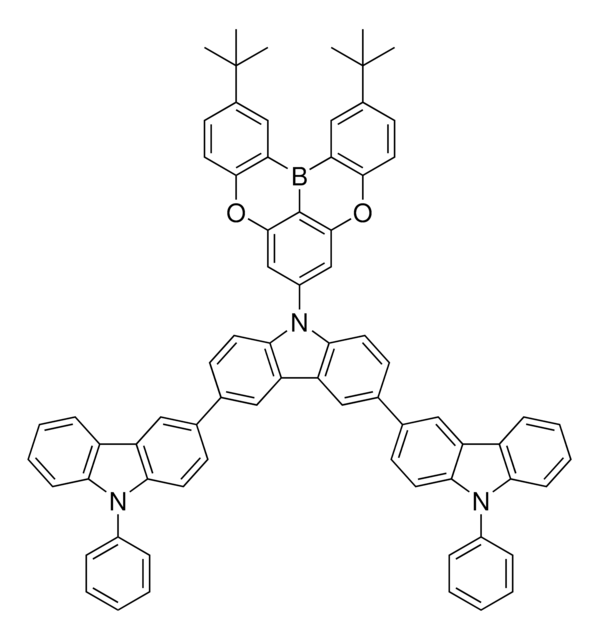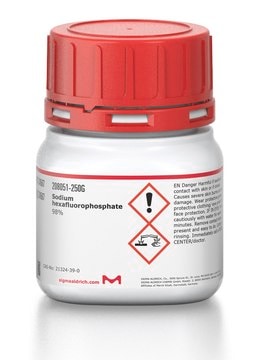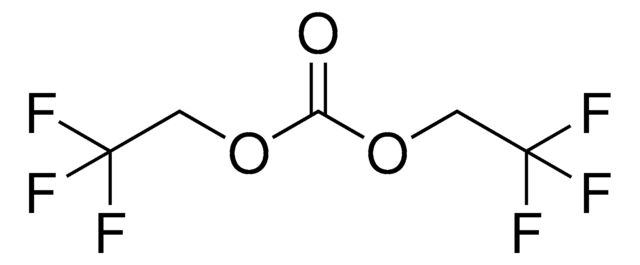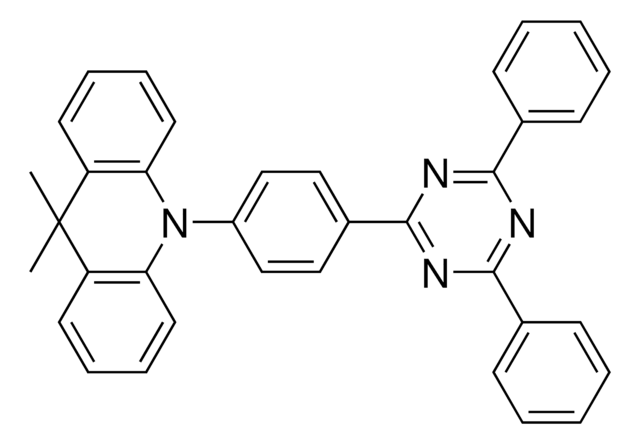933953
Sodium difluoro(oxalato)borate
≥99%, battery grade
Synonym(s):
NaDFOB, NaFOB, Sodium difluoro(ethanedioato)borate
About This Item
Recommended Products
grade
battery grade
Quality Level
description
Application: Battery manufacturing
Assay
≥99%
form
powder
greener alternative product characteristics
Design for Energy Efficiency
Learn more about the Principles of Green Chemistry.
sustainability
Greener Alternative Product
impurities
≤0.2% H2O
anion traces
chloride (Cl-): ≤50 ppm
sulfate (SO42-): ≤20 ppm
cation traces
Ca: ≤20 ppm
K: ≤20 ppm
Mg: ≤20 ppm
application(s)
battery manufacturing
greener alternative category
SMILES string
O=C1C(O[B-](F)(F)([Na+])O1)=O
Related Categories
General description
Application
Signal Word
Warning
Hazard Statements
Precautionary Statements
Hazard Classifications
Eye Irrit. 2 - Skin Irrit. 2 - STOT SE 3
Target Organs
Respiratory system
Storage Class Code
11 - Combustible Solids
WGK
WGK 3
Flash Point(F)
Not applicable
Flash Point(C)
Not applicable
Certificates of Analysis (COA)
Search for Certificates of Analysis (COA) by entering the products Lot/Batch Number. Lot and Batch Numbers can be found on a product’s label following the words ‘Lot’ or ‘Batch’.
Already Own This Product?
Find documentation for the products that you have recently purchased in the Document Library.
Our team of scientists has experience in all areas of research including Life Science, Material Science, Chemical Synthesis, Chromatography, Analytical and many others.
Contact Technical Service









